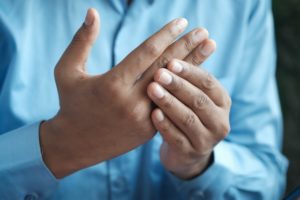MUSCLES, JOINTS & BONE HEALTH
Prevention is Key to your Joints Health.
No Need to Suffer, Start Feeling Better
Neema Malhotra, M.D.
2730 Union Ave, Suite B
San Jose, CA 95124
(408) 684-8600
MUSCLES, JOINTS & BONE HEALTH
Muscles, Bones & Joints fittness is one of three important types of overall physical fitness. The others are aerobic fitness and flexibility. When you increase your muscle fitness, you'll notice that you can carry heavy grocery bags more easily, pick up children without feeling as much strain, or carry heavy items longer before you get too tired to continue. Benefits of muscle fitness include: Stronger muscles, which also help protect your joints. Muscles that can work longer before getting tired. Less body fat. Stronger bones. Better posture and balance. Lower blood sugar. Less stress. Fewer body aches. More energy.
Some of the typical lab tests included in this muscles, joints & bones panel are
ALP,
An alkaline phosphatase (ALP) test measures the amount of the enzyme ALP in the blood. ALP is made mostly in the liver and in bone with some made in the intestines and kidneys. It also is made by the placenta of a pregnant woman.
The liver makes more ALP than the other organs or the bones. Some conditions cause large amounts of ALP in the blood. These conditions include rapid bone growth (during puberty), bone disease (such as Paget's disease or cancer that has spread to the bones), a disease that affects how much calcium is in the blood ( hyperparathyroidism), vitamin D deficiency, or damaged liver cells.
If the ALP level is high, more tests may be done to find the cause. The amounts of different types of ALP in the blood may be measured and used to determine whether a high level is from the liver or bones. This is called an alkaline phosphatase isoenzymes test.
CALCIUM,
A test for calcium in the blood checks the calcium level in the body that is not stored in the bones. Calcium is the most common mineral in the body and one of the most important. The body needs it to build and fix bones and teeth, help nerves work, make muscles squeeze together, help blood clot, and help the heart to work. Almost all of the calcium in the body is stored in bone.
Normally the level of calcium in the blood is carefully controlled. When blood calcium levels get low ( hypocalcemia ), the bones release calcium to bring it back to a good blood level. When blood calcium levels get high ( hypercalcemia ), the extra calcium is stored in the bones or passed out of the body in urine and stool. The amount of calcium in the body depends on the amount of:
- Calcium you get in your food.
- Calcium and vitamin D your intestines absorb.
- Phosphate in the body.
- Certain hormones, including parathyroid hormone, calcitonin, and estrogen in the body.
Vitamin D and these hormones help control the amount of calcium in the body. They also control the amount of calcium you absorb from food and the amount passed from the body in urine. The blood levels of phosphate are closely linked to calcium levels and they work in opposite ways: As blood calcium levels get high, phosphate levels get low, and the opposite is also true.
It is important to get the right amount of calcium in your food because the body loses calcium every day. Foods rich in calcium include dairy products (milk, cheese), eggs, fish, green vegetables, and fruit. Most people who have low or high levels of calcium do not have any symptoms. Calcium levels need to be very high or low to cause symptoms.
CK TOTAL,
A creatine kinase (CK) test checks the level of the enzyme creatine kinase, which is found in heart tissue and skeletal muscles. This enzyme also can be found in smaller amounts in the brain. A blood test to check the level of CK can show if there has been damage to the heart, skeletal muscles, brain, and sometimes other parts of the body. The test is also called creatine phosphokinase (CPK).
CK is made up of three smaller types of enzymes, called isoenzymes: MM, MB, and BB. A doctor looks not only at the total level of CK but also at the level of these smaller parts to find a health problem.
CK might be used to help diagnose a heart attack. This topic focuses on CK tests for other reasons than heart attack.
CREATININE,
A creatine kinase (CK) test checks the level of the enzyme creatine kinase, which is found in heart tissue and skeletal muscles. This enzyme also can be found in smaller amounts in the brain. A blood test to check the level of CK can show if there has been damage to the heart, skeletal muscles, brain, and sometimes other parts of the body. The test is also called creatine phosphokinase (CPK).
CK is made up of three smaller types of enzymes, called isoenzymes: MM, MB, and BB. A doctor looks not only at the total level of CK but also at the level of these smaller parts to find a health problem.
CK might be used to help diagnose a heart attack. This topic focuses on CK tests for other reasons than heart attack.
VITAMIN D, 25-HYDROXY,
A vitamin D test measures the amount of vitamin D in the blood. Your body needs vitamin D to absorb calcium . Calcium keeps your bones and muscles healthy and strong.
If your muscles don't get enough calcium, they can cramp, hurt, or feel weak. You may have long-term (chronic) muscle aches and pains. If you don't get enough vitamin D throughout life, you are more likely to have thin and brittle bones ( osteoporosis ) in your later years.
Children who don't get enough vitamin D may not grow as much as others their age. They also have a chance of getting a rare disease called rickets .
Your body uses sunshine to make its own vitamin D. Vitamin D is found in foods such as egg yolks, liver, and saltwater fish. It is also added to many food products, such as milk and cereals. You can also get it as supplements, often combined with calcium.
The vitamin D test is also called the 25-hydroxy vitamin D, or 25(OH)D, test.
Muscles, Bones, and Joints Problems:
can range from minor aches and pains to more serious conditions such as fractures, arthritis, or tendonitis. Here are some common problems in these areas:
- Strains and sprains: These are injuries to muscles or ligaments, often caused by overuse or sudden, forceful movements.
- Arthritis: A condition that causes inflammation and pain in the joints, leading to stiffness and reduced mobility.
- Tendinitis: Inflammation of a tendon, usually caused by overuse.
- Fractures: Breaks in bones that can be caused by trauma or weakened bones due to osteoporosis.
- Dislocations: A condition in which a bone is displaced from its normal position in a joint.
- Bursitis: Inflammation of a bursa, which are small fluid-filled sacs that help reduce friction in joints.
- Osteoporosis: A condition in which bones become brittle and fragile due to loss of bone density.
It's important to see a doctor if you experience persistent pain or discomfort in your muscles, bones, or joints, or if you suspect you may have suffered an injury. Early treatment can help prevent long-term damage and improve your chances of a full recovery.
Testng for Muscles, Joints & Bones
Most people with new-onset fatigue are usually advised to change their lifestyles, including diet, exercise habits, and stress levels, to see if such changes can improve symptoms. Should those fail, a visit to a primary care provider typically results in a trial of treatments to address sleep issue or mental health concerns. If symptoms persist, and a diagnosis cannot be made, patients may wish to discuss diagnostic testing using the third party Lab for chronic muscles, joints or bones pains with Dr. Malhotra. There is no single test that can diagnose Chronic Fatigue. Instead, your physician may need to rule out other causes of persistent fatigue before providing a diagnosis of Chronic Fatigue or tiredness. Make an appointment to a consult with Dr. Nema Malhotra to confirm if testing is right for you and determine a holistic treatment plan.
Contact Us for Muscles, Joints & Bones
(408) 684-8600















